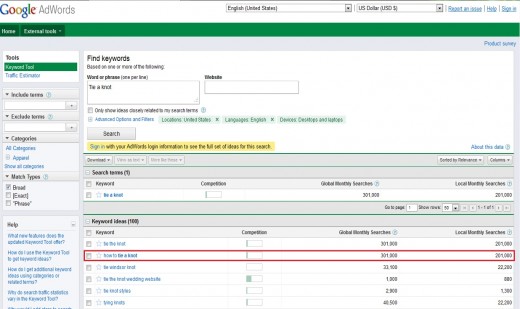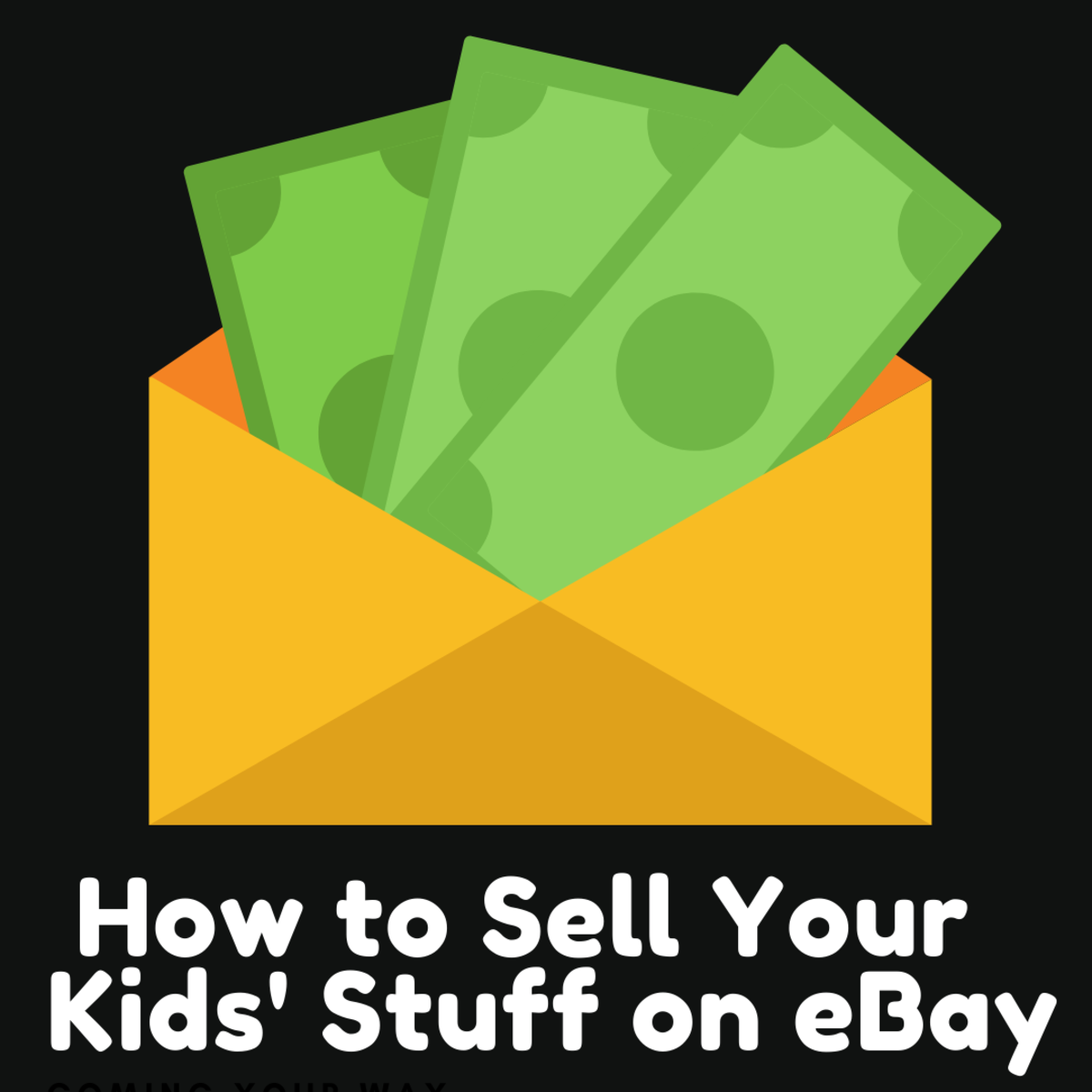What Exactly is "Keyword Research" Anyways?

Most of the long time members here know what keyword research is. However, if you are new to article marketing and creation, keyword research can seem like something that is unnecessary. When I was a young Internet publisher, I thought keyword research was a waste of time. I figured that I would just create content on what ever I wanted and if it was good enough, the traffic would just come. Boy was I wrong. When I didn't see the success that I was hoping for, I turned to the Internet for answers. One of the first things I read over and over again was that keyword research was necessary to get readers from the search engines to your pages. I learned that the proper research and use of keywords would ensure that the search engines could read and rank my content appropriately. So for you newbies out there, here are some key word research tips:
Use The Google AdWords Keyword Tool
The Google AdWords Keyword Tool will enable you to find relevant keywords that are associated with or contain the words that you enter into the search box. You will also get a list called "Keyword Ideas" that can help you tailor the words that can be used in an upcoming article. The list will give you both the global and local search volumes for specific phrases as well as an estimate of the amount of competition that exists for it. When hunting for an idea of what to write about, you should use this program to find low competition keywords that have a high search volume (see the screenshot below). The value of this free tool cannot be understated.

Use Google Insights for Search
Google Insights for Search is a great way to find out about what and how often the world is searching for something. You can enter a specific search term and select a search type, a geographical location, a time frame, and a category. If you leave the search field blank, you will get the top search phrases given the options you selected. One of the cool things about this is that you can see the search volume index for a specific word or phrase over a period of time. This great because you can forecast trends, compare keywords, and identify relationships that you never knew existed. Google Insights is essentially a more advanced and useful version of Google Trends.

Use Microsoft AdCenter
There are some pretty useful tools available in the Microsoft AdCenter. You can find common misspellings of keywords, detect groups and related words based on an input, and forecast search volumes for specific keywords. One great thing this site has to offer is the Search Funnel tool. This lets you view trends in multiple searches done by real people using the web. You could find out what people typically enter into the search engine after they have searched for something else. For example, if someone searches for "car prices," wouldn't it be nice to know what they searched for next? I hope that you can see the value in this. You do need to create a free account to use these tools. You can also download an Excel Add-in called Advertising Intelligence to help with your keyword research.
Use a Thesaurus
You probably thought our old friend the thesaurus was extinct didn't you? Well its time to break out the dusty book or use a site such as thesaurus.com to help you research keywords. This is pretty simple actually. Just search for a specific term and you will find synonyms and related words that you can use to enhance your writing. Many word processing programs have a built in thesaurus to help you find synonyms, however I have found that their dictionary is somewhat limited.
Some Closing Tips
When researching keywords for your next article, be sure to keep in mind your target audience. You will need to think like them if you want to be successful. Typically you need to write at a 4-6th grade level if you want to capture the widest range of people on the Internet. If you write "too smart" and use too many big words, you just won't get the traffic that you should be getting. One of the best things I ever did was sit down one day read the content of some of the most successful blogs and websites on the internet. I quickly learned how the text was written and could then apply the same style, tone, and voice to my own articles. By using these tips I hope that you will become more successful in the future.









